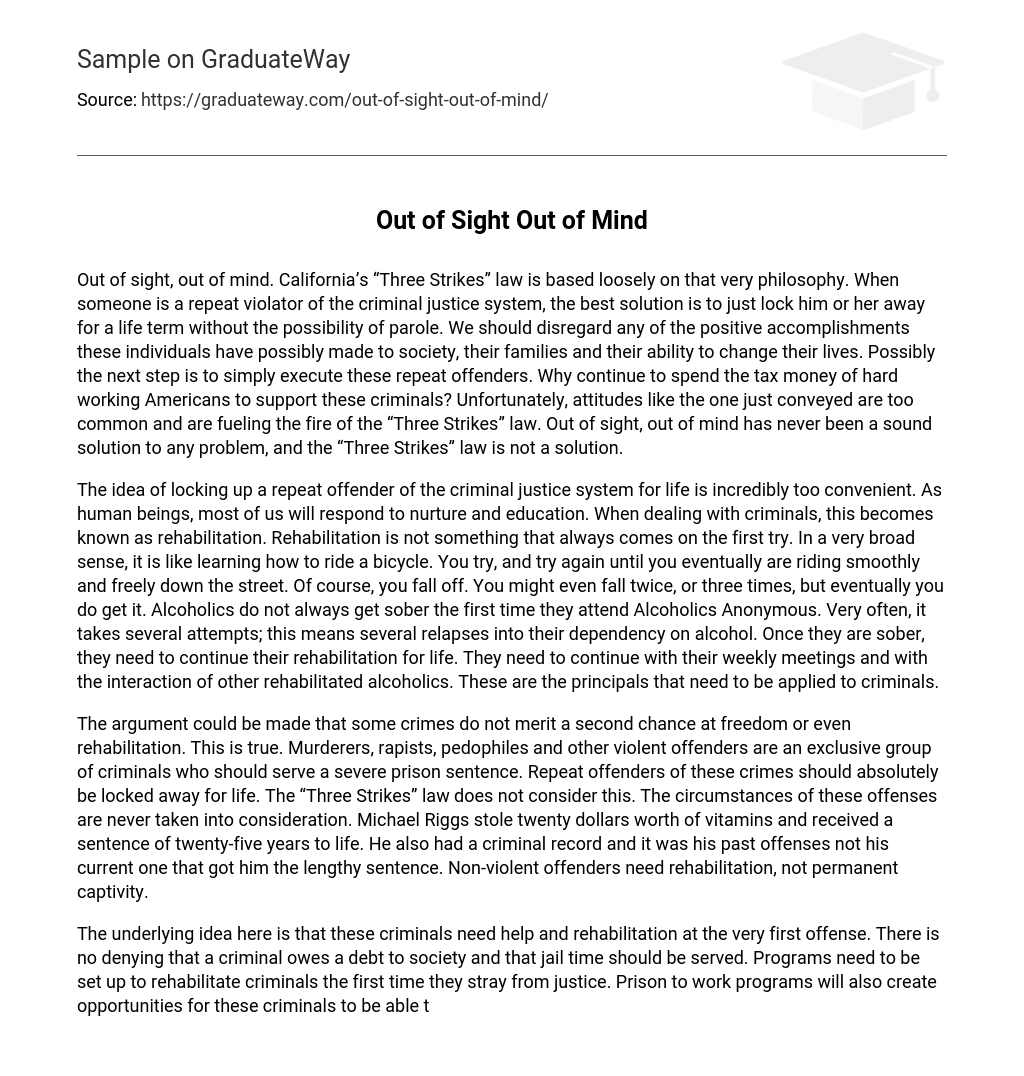The “Three Strikes” law in California mandates life imprisonment without parole for individuals who repeatedly violate the criminal justice system. This approach fails to acknowledge any positive contributions these individuals may have made to society, their families, and their potential for rehabilitation. It even proposes capital punishment as the next course of action for these repeat offenders. Why should taxpayers continue to support these criminals? Unfortunately, such attitudes are widespread and influence the enforcement of the “Three Strikes” law. However, disregarding a problem has never proven to be an effective solution, and this law is no different.
The concept of imprisoning a repeat offender for life within the criminal justice system is excessively convenient. As individuals, most of us are responsive to nurturing and education, which we refer to as rehabilitation when dealing with criminals. However, rehabilitation is not always accomplished on the first try. It can be compared to learning how to ride a bicycle; one must make repeated attempts until eventually riding smoothly and freely on the street, even though falling off may occur multiple times before finally succeeding. Similarly, achieving sobriety for alcoholics often requires several attempts and results in multiple relapses into alcohol dependency before they become sober. Once they do achieve sobriety, their journey of rehabilitation must continue indefinitely by attending weekly meetings and interacting with other rehabilitated alcoholics. These same principles should also be applied to criminals.
The argument can be made that there are certain crimes, such as murder, rape, pedophilia, and other violent offenses, where a second chance at freedom or rehabilitation should not be allowed. These types of criminals deserve harsh prison sentences and repeat offenders of such crimes should unquestionably receive life imprisonment. Unfortunately, the “Three Strikes” law fails to consider this perspective and disregards the circumstances surrounding these offenses. An example is Michael Riggs who stole twenty dollars worth of vitamins and received a sentence of twenty-five years to life due to his prior offenses rather than his current one. Instead of being permanently imprisoned, non-violent offenders should have the opportunity for rehabilitation.
The core concept is that criminals should receive assistance and rehabilitation from their very first offense. It is indisputable that criminals have a societal debt to repay, and serving jail time is necessary. It is important to establish programs that focus on rehabilitating offenders from their initial divergence from justice. Additionally, implementing prison-to-work initiatives will offer these individuals opportunities to find employment post-incarceration and a sense of purpose. We cannot ignore or forget about human beings because, as Americans, we are neither oblivious nor unwilling to forgive.





